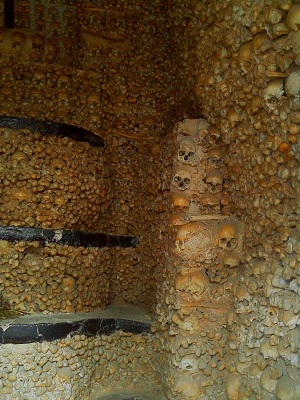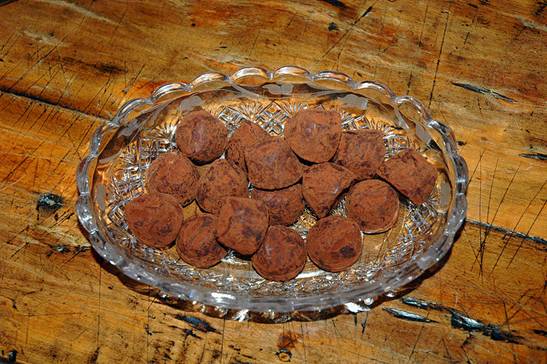
There is much talk about human rights in the present age.
But there is little talk of duty.
What good is it if a man presses his rights, but forgets his duty towards his fellow citizens? He is no better than the Pharisees who were condemned by the Lord, Jesus Christ, who said to them, “All too well you reject the commandment of God, that you may keep your tradition. For Moses said, ‘Honour your father and your mother’; and, ‘He who curses father or mother, let him be put to death.’ But you say, ‘If a man says to his father or mother, “Whatever profit you might have received from me is Corban”‘ (that is, a gift to God), then you no longer let him do anything for his father or his mother, making the word of God of no effect through your tradition which you have handed down.” (Mark 7:9-13 NKJV)
By applying the law of rights – I have a right to do what I like with my money – the Pharisee, or indeed anyone who wished to do so, was able to lay aside his duty to provide care for his parents. All too often we press our rights without thinking of the consequences for others. Better to be wronged surely than deprive another of his rights or to fail to do your duty! The apostle Paul writing to the Corinthian church, where people were all too ready to press their rights, said: Now therefore, it is already an utter failure for you that you go to law against one another. Why do you not rather accept wrong? Why do you not rather let yourselves be cheated? No, you yourselves do wrong and cheat, and you do these things to your brethren! (1 Corinthians 6:7-9 NKJV)
What of the conflict of rights? What of the right to smoke? If such a right, to slowly destroy oneself, could possibly exist. Does this right not conflict with a right to clean air? I do not doubt that it would not be difficult to come up with a list of rights that conflict with one another on a very practical level, but also much more seriously on an ethical and moral level.
When we arrived in Winnipeg early in the evening we heard others speaking about going to visit the cathedral. Looking around we saw a cathedral like structure not far from the station. Could that be it? It looked like a cathedral. As we walked towards the bridge which passed nearby, we saw that indeed it was a cathedral, in a very secular sense of that word, for it was a museum to the god of the post modern age, Human Rights. Men fall down at the feet of this god, as if he must always be satisfied, whatever the outcome may be, and whatever common sense might say. Human Rights must be obeyed even if the granting of a right to one deprives another of a right. Who is granted and who is deprived depends more upon the ephemeral wishes of public opinion, or perhaps more upon the wishes of the liberal elite, rather than objective truth, so rather than human rights being granted, we are subject to the tyranical rule of the new despots of liberalism.
I have no wish to belittle the importance of rights, but to come back to the words of the Lord, rights cannot relieve us of our duties. The duty of the king to protect his people must at times mean that he will deny some of his people their rights. A man may have a right to family life, but if that man is a danger to the king’s other subjects, then it is the duty of the king to deprive him of his rights for the protection of his people. The king’s duty trumps the rights of the individual.
I do not think for one moment that this is popular teaching! Our response to a rebellion in the middle east shows that the West has lost its direction in this regard. Rather than supporting the king in his efforts to do his duty and maintain peace for his people, just because we disagreed with the king, we encouraged the rebels. Did we not think! Or did we naïvely think that by replacing one ‘rights’ violator we would not end up with another ‘rights’ violator?
There is a better museum of human rights to be found in Winnipeg than this monstrosity. In the grounds of St Boniface’s cathedral just a short walk from the CMHR, there is a pastiche, though a very serious pastiche, on the theme of the tomb of the unknown soldier. A young women leans forlornly on a marble grave stone. It is not clear whether she is the mother or the child, but whether she is the mother of the child she is one of whom the grave stone speaks eloquently, but silently, in French and in English:
- À la memoire des victimes de l’avortement
- In memory of the victims of abortion
The right to life has in our (post)-modern (so called) world been trumped by the right to do as you please with your own body. The mother is persuaded by the abortionist that the cathedral of her womb may expel the bishop whenever she wishes, after all it is her body, not the body of another. And so we prove that we are no better than the Spartans, and certainly no less cruel.
The sign outside the CMHR suggests that it is both a keeper of the past and a beacon for the future. As keeper of the past, then perhaps one can only suggest that it keeps the past so well that compassion has been lost within her. Of what use is compassion in a world dominated by rights!
For my part, there is only one thing that can follow a claim to be keeper of the past and beacon of the future – a folly of the present. Oh that men may see that the Lord who made the heavens and the earth, desires righteousness above rights, and compassion from and towards humanity.
The prophet Micah made this plain when he spoke out: Hear now what the LORD says:… He has shown you, O man, what is good; and what does the LORD require of you but to do justly, to love mercy, and to walk humbly with your God? (6:8)
My parable of the banker shows whereup, when rights trump duty, we can end.

I suppose I should let the CMHR speak for itself. Without contradicting what I said above they do some good. What is a pity is that the doctrine to which they hold, not being derived from Biblical teaching, leads them at times to reach the wrong conclusions.


















